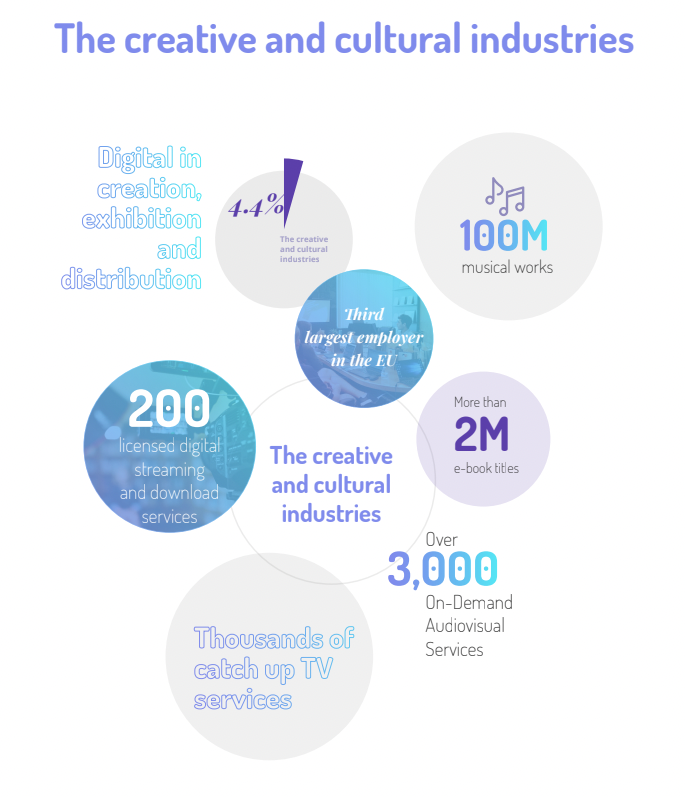Digital Services Act (DSA)
A first step towards an improved legal framework for fighting the spread of illegal content online and enhanced consumer protection in the digital sphere.

The creative and cultural industries thrive on a strong liability regime
– DSA enforcement should ensure consistency with upholding IPR;
– Tried and tested remedies to tackle illegal content should be strictly enforced;
– Rogue operators are to be treated as such, with strict measures in place.

What is illegal offline is also illegal online
– Recognising the role of “trusted flaggers” with expertise and a track record of accurate notices is an important first step to tackling illegal content online;
– Notice and action mechanisms: both prevention and fast removal of illegal and unlicensed content should be the outcome when enforcing the DSA;
– No tolerance for repeat infringers: The adoption of mandatory repeat offender policies by online platforms is an important tool to ensure online safety and tackle illegal content.


Making the online environment safer for users and consumers
-The establishment of the KYBC principle was an important first step, but far more needs to be done to ensure transparency for consumers and providers of products/services;
– DSA enforcement should be the tool guaranteeing that disinformation is effectively tackled.
